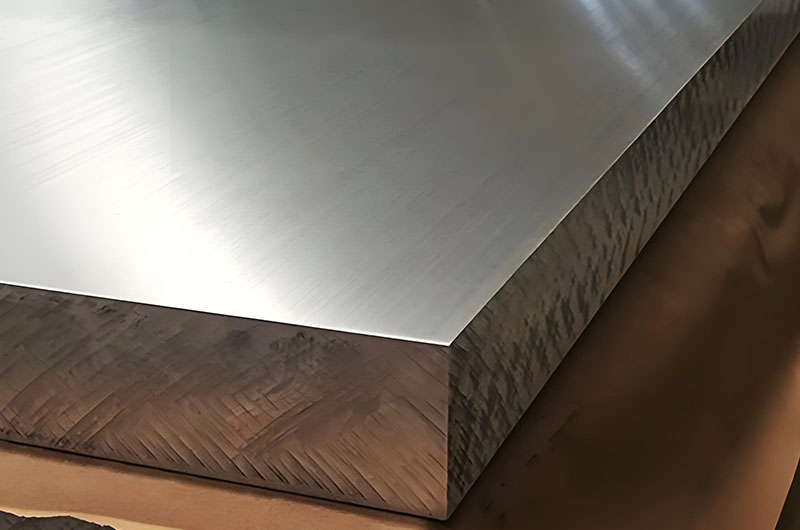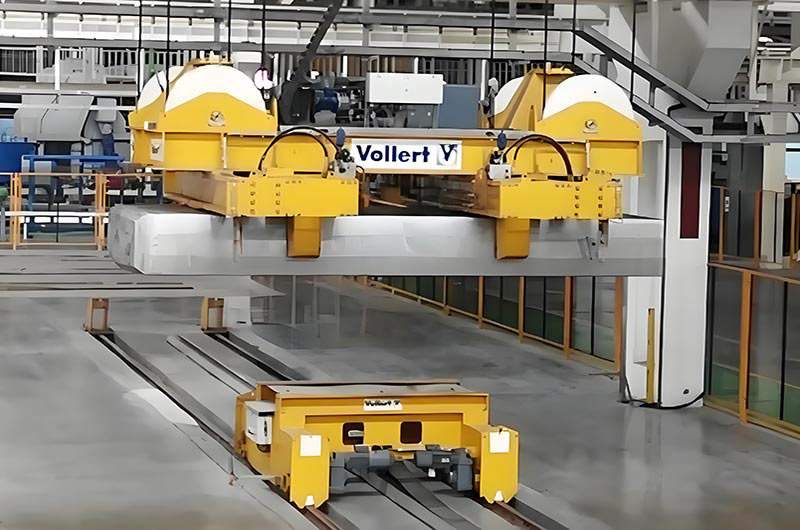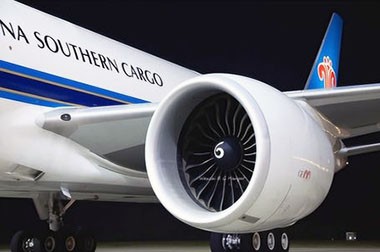2219 T62 Aluminum
2219-T62 aluminum alloy is a 2219 aluminum alloy that has been treated through a specific heat treatment process, which mainly includes solution heat treatment and artificial aging. This process enables the 2219 aluminum alloy to achieve the required mechanical properties, making it suitable for high-load and high-stress applications, particularly in aerospace and industrial fields.
2219-T62 aluminum alloy is a high-performance alloy that meets specific performance requirements through precise control of the heat treatment process, making it particularly suitable for high-tech fields that require long-term stable operation under high strength and high-temperature conditions.
2219 aluminum is a member of the 2000 series (Al-Cu) alloys, known for its high strength, excellent fracture toughness, and good weldability. The "T62" temper designation indicates that the alloy has been solution heat-treated and then artificially aged to a specific condition—balancing strength, ductility, and stress corrosion resistance. This makes 2219-T62 particularly suitable for aerospace applications, such as fuel tanks, spacecraft components (including parts of the Space Shuttle external fuel tanks), and other high-performance structural components.
2219-T62 aluminum alloy is one of the top-performing alloys in the 2000 series. Its precise chemical composition, combined with controlled T62 heat treatment, gives the alloy high strength, low weight, and stress corrosion resistance, while also offering excellent weldability. These characteristics make it the material of choice for aerospace and other high-performance applications.

2219 T62 Aluminum Mechanical Properties
| Property | 2219-T62 Aluminum |
| Elastic (Young's, Tensile) Modulus, GPa | 72 |
| Elongation at Break, % | 8.5 |
| Fatigue Strength, MPa | 110 |
| Poisson's Ratio | 0.33 |
| Shear Modulus, GPa | 27 |
| Shear Strength, MPa | 250 |
| Tensile Strength: Ultimate (UTS), MPa | 420 |
| Tensile Strength: Yield (Proof), MPa | 290 |
The 2219 aluminum alloy in the T62 temper, after undergoing this series of heat treatment processes, exhibits high strength and excellent high-temperature performance. These properties make it stand out in aerospace applications that require strength and temperature resistance. However, because the T62 temper heat treatment is performed by the receiving party, it provides greater flexibility and can be optimized according to actual use requirements to ensure the final product meets application standards.
2219 T62 Aluminum Chemical Composition
| Elements | Composition(%) |
| Si | ≤0.2 |
| Fe | ≤0.3 |
| Cu | 5.80-6.80 |
| Mn | 0.20-0.40 |
| Mg | ≤0.02 |
| Zn | ≤0.1 |
| Ti | 0.02-0.10 |
| V | 0.05-0.15 |
| Zn | 0.10-0.25 |
| Others | Each: 0.05 |
| Total: 0.15 | |
| Al | Bal |
2219 T62 Aluminum Corrosion Resistance
- Disadvantage: Due to its copper content, it is prone to corrosion in harsh environments.
- Protection: Anodizing or aluminum coating is typically used to enhance corrosion resistance.
2219 T62 Aluminum vs Other Tempers
- T62 vs T6: T62 has higher stress corrosion resistance due to cold working.
- T62 vs T81: T81 involves solution heat treatment, cold working, and artificial aging, offering higher strength but lower ductility.
2219 T62 Aluminum Standards and Specifications
- AMS 4117: Aerospace material specification for 2219-T62 sheet/plate.
- ASTM B209: Standard specification for aluminum and aluminum alloy sheet and plate.

2219 T62 Aluminum Advantages
| Advantage | Description |
| High Strength-to-Weight Ratio | 2219 T62 aluminum alloy has an extremely high strength, making it particularly suitable for applications that require an excellent strength-to-weight ratio. This alloy is crucial in aerospace applications, as it allows for reduced structural weight while maintaining high strength, ensuring that aircraft or spacecraft can withstand harsh operating conditions. |
| Weldability and Fracture Toughness | 2219 T62 aluminum alloy is renowned for its excellent weldability and fracture toughness, especially in structural components that require welding. Its good welding performance enables high-quality joints during manufacturing, while its high fracture toughness reduces the risk of crack propagation under extreme conditions, ensuring long-term structural reliability. |
| Suitable for Low and High Temperature Applications | 2219 T62 aluminum alloy can perform stably under extreme temperature conditions, making it suitable for both low and high-temperature environments. Its low-temperature performance makes it excellent for use in cold environments in aerospace applications, while at high temperatures, it can withstand higher temperatures without losing strength or toughness, meeting the demands of rocket engines and other high-temperature components. |
2219 T62 Aluminum Applications
2219-T62 aluminum alloy has wide applications in aerospace and industrial fields. Its high strength, high-temperature resistance, and corrosion resistance make it an ideal material choice for many high-load, high-temperature, and high-pressure environments, especially for critical components that require strength, such as spacecraft, aircraft fuselages, engine parts, missile casings, fuel tanks, and other important structural parts.
| Application | Description |
| Spacecraft Structures | Due to its exceptional high strength and high-temperature resistance, 2219-T62 aluminum alloy is commonly used in spacecraft structural components. In spacecraft design, enduring high stress and high-temperature environments is a common challenge. 2219-T62 aluminum alloy provides the required strength to support the extreme loads experienced by the spacecraft during launch and flight. At the same time, the alloy's corrosion resistance ensures its long-term reliability in space environments. Common applications include spacecraft frames, shells, and load-bearing structures. |
| Aircraft Fuselage | In aircraft fuselage manufacturing, 2219-T62 aluminum alloy is widely used in components that bear large loads, especially in more demanding environments. Aircraft experience significant aerodynamic pressure and temperature changes during flight, so the materials used for the fuselage must meet high standards. 2219-T62 aluminum alloy, with its high strength and high-temperature characteristics, effectively meets these challenges, ensuring the stability and safety of the aircraft fuselage. |
| Engine Parts | 2219-T62 aluminum alloy is widely used in aerospace engine parts, particularly those that need to maintain strength in high-temperature environments. For example, engine casings and certain hot components (such as turbines and compressors) are often made from this alloy to ensure the engine maintains structural integrity under high-temperature and high-pressure conditions. The excellent high-temperature performance of 2219-T62 aluminum ensures excellent stability and reliability during engine operation. |
| Fuel Tanks | 2219-T62 aluminum alloy is also commonly used to manufacture fuel tanks for aircraft or spacecraft, especially those that need to withstand high pressure and temperature conditions. Fuel tanks must not only have high structural strength but also resist corrosion from the fuel and external environmental factors. 2219-T62 aluminum alloy, with its strength, corrosion resistance, and high-temperature performance, meets these stringent requirements, ensuring the safety and reliability of the fuel tanks under extreme conditions. |
| Pressure Vessels | In some industrial fields, such as oil, natural gas, and chemical industries, 2219-T62 aluminum alloy is used to manufacture high-pressure vessels. These vessels must work in high-pressure and high-temperature environments while maintaining structural strength and corrosion resistance. The high-strength characteristics of 2219-T62 aluminum enable it to remain stable under such extreme conditions and effectively prevent structural deformation or rupture. |
| Aerospace Engine Parts | In aerospace engines, 2219-T62 aluminum alloy is used to manufacture components that endure high stress and high temperatures. Since engine parts often have to withstand extremely high mechanical stress and operating temperatures, 2219-T62 aluminum's high strength, corrosion resistance, and excellent high-temperature performance make it an ideal material for these parts. For example, components such as engine casings and turbine blade supports are likely made from this aluminum alloy to ensure the engine's efficient operation and long service life. |
2219 T62 Aluminum Limitations
- Requires corrosion protection for long-term outdoor use.
- Has lower fatigue strength compared to some 7xxx series alloys.
- This alloy is ideal for aerospace structural components where weldability, strength, and thermal stability are crucial.
2219 T62 Aluminum Processing and Fabrication
- Heat Treatment: 2219 aluminum is a heat-treatable alloy. The typical processing route includes solution heat treatment followed by controlled aging (artificial aging) to achieve the T62 temper. This treatment produces fine precipitates dispersed throughout the alloy, enhancing its strength.
- Weldability: One of the standout features of 2219 aluminum is its excellent weldability. It can be welded with minimal loss of mechanical properties, which is a key factor in aerospace structures.
- Forming and Fabrication: The alloy can be easily processed and formed using conventional techniques in the annealed or appropriately heat-treated state.
- Machinability: Average; requires carbide tools and lubrication.
- Formability: Medium; performs best in the annealed (O) state before aging.

